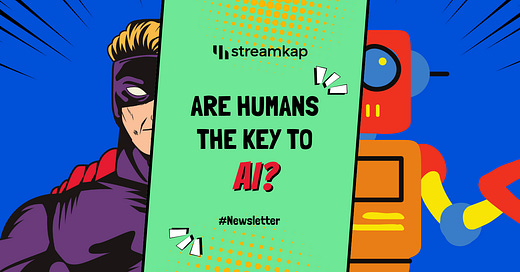Forward deployed engineers (FDEs) have come up a few times already in this newsletter, most recently last week. I hope you’re not tired of it because we’re back at it with some fresh data and a broader view.
On Monday, Mistral announced that they had signed a multi-year €100M deal with $55B global shipping giant CMA CMG. Oliver Molander commented with some critical deal detail that FDEs were a key component of the deal.
We talked last week about Palantir’s success developing ontologies to help AI tools understand businesses but there is perhaps a broader insight here. Services are going to be a key component of early AI deployment in the enterprise.
I guested on Chris Tabb’s Data Value Show earlier this week, and FDEs came up. Ryan Dolley, in his reliable role as a source of quotes for this newsletter, chimed in with this gem of a comment:
Perhaps that’s true. It’s an FDE if it’s a California VC-backed company, otherwise it’s just sparkling consulting…
So what is the opportunity for consulting in AI? We need look no further than Accenture’s Q1 FY25 earnings, $1.2B of generative AI revenue booked in the quarter. We can see from Benedict Evan’s annual presentation that this is representative of a strong trend.
While, justifiably, much of the hype around AI has surrounded the technology itself, whether it’s fast-growing applications, frontier models, or chips, there is clearly a huge opportunity for services.
We are deploying a brand new technology at unprecedented speed, how could it be that companies don’t need help.
In related news, IBM announced its acquisition of data consulting firm Hakkoda on Monday. Their stated goal:
"With Hakkoda's data expertise, deep technology partnerships and asset-centric delivery model, IBM will be even better positioned to deliver value faster to clients as they transform with AI."
On the other side of the coin, I’ve heard validation of the related challenges from startups deploying AI in the enterprise: customers don’t know what problems they should be solving with AI, and they can’t plan around the rapidly shifting state of the art architectures, and they face evergreen problems that have plagued data analytics since the beginning of time (silos, poor quality, lacking semantics, etc.)
It seems to me that we’ll continue to see services delivered by humans as a key driver of value in AI.
Unless…
AGI comes first, in July 2027, followed by ASI in September 2027, in which case, don’t worry about consultants or FDEs or human knowledge work…
Those links are from a report called AI 2027, which was made public last week by renowned forecaster Daniel Kokotajlo (who predicted the current AI progress quite accurately back in 2021). I would also recommend listening to the Dwarkesh podcast episode with Daniel and co-author Scott Alexander.
While Daniel et al present a compelling case, I’m not fully convinced, I reckon humans will be helping make AI useful for at least another few years beyond 2027.
If I’m wrong, I sure hope we get the AI-powered eutopia, not the, ahem, less optimistic outcomes…
Warmly,
Paul Dudley








